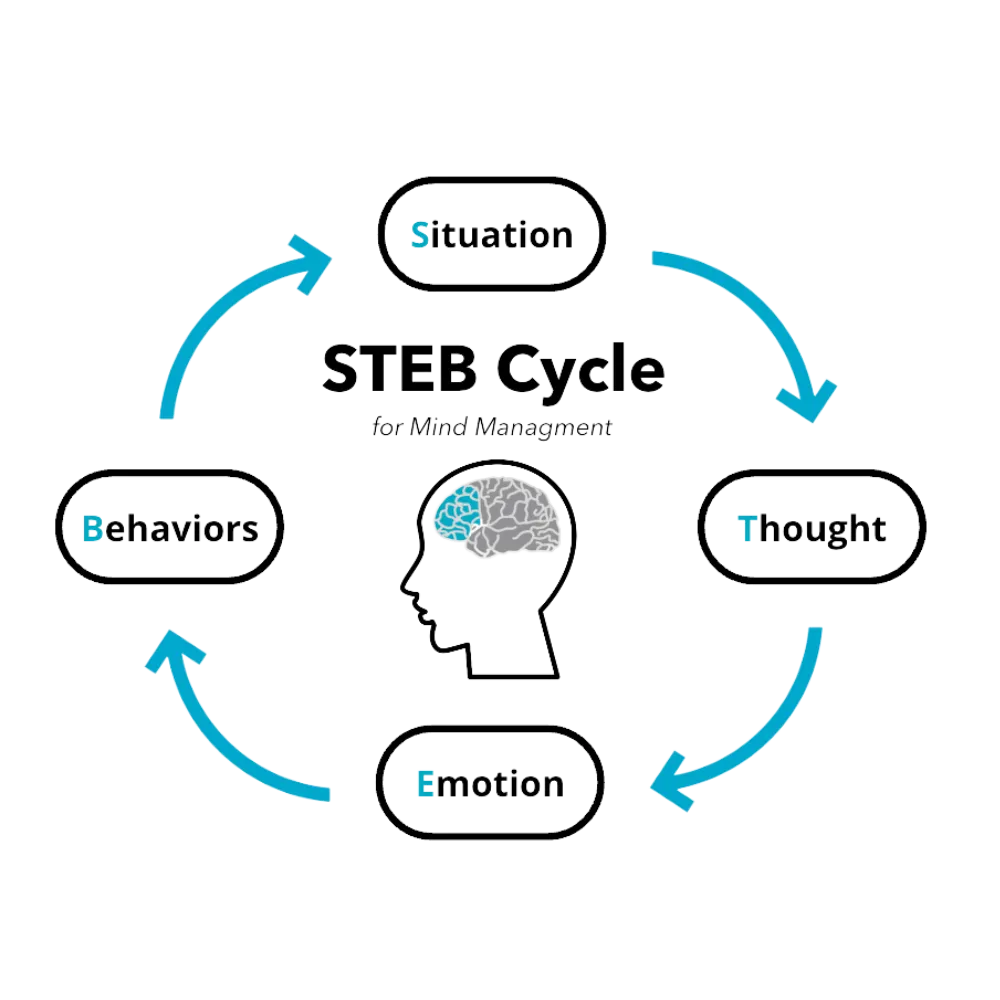The 4 Step Cycle for Mindful Intelligence
Taking Back Our Power
Having power over your life means you can create the life you desire.
The reason why so many of us feel like we don't have control over our lives is because we keep blaming other things or other people. We blame our past, situations out of our control, our parents, our siblings, our spouse, children, friends, coworkers, bosses, etc, for the problems we have. For the life we have.
The minute we blame something or somebody else, we give away all our power. If your life is the way it is because of other people or other things, then guess what, in order for your life to change, the people/things around you have to change.
How many times have you tried to control the people around you? I know I've tried more times than I can count. And I've ALWAYS failed. Even when I think I succeeded, the other person either built resentment or held it over me in the future. 'I did this because of you.'
Point is, you can't change anything except yourself. So if you take responsibility for your problems and overall life, then you can change it.
That's amazing news!!
Now you may be wondering, HOW?
This is where Mindful Intelligence comes in. Keep reading and you'll learn the 4 steps to managing your mind in a way that will allow you to take back power over your life and create the life you want.
Simply put:
All of life can be simplified into 4 steps.
Situations. Thoughts. Emotions. Behaviors.
When a situation arises, our thoughts about the situation generate emotions, which in turn drive our behaviors, which then creates another situation, forming a continuous cycle.
By understanding these four steps, you'll be able to control them and therefore have power over your life.

Situation
Situations are the circumstances or conditions that someone or something is in at a particular moment. They are factual and can be proven in law. They are objective and neutral.
The fact that I was born in Dallas, TX is a situation. It is factual, objective, neutral and can be proven in the court of law.
Other people's actions and your past are also classified as situations.
For example, your coworker being 15 minutes late to an important client meeting last week is a situation. It happened. It's a fact. It can't be changed.
If you coworker sends an email cancelling the client meeting for later today, that is also a situation. It happened and no one can argue that the email was not sent.
Situations are facts in life. They are objective and neutral. They are neither good nor bad.
They only become good or bad based on the thoughts we have about them.
One person can think the client meeting being cancelled is good because they get to spend more time on another assignment they're working on and another person can think the cancellation is bad because they had important things to discuss with the client.
Thought
Thoughts are arguably the most important thing that exists in your world. You have about 60,000 of them everyday.
Thoughts are sentences in your mind. They are the lens through which you observe the world. This is why 2 people can hear the same thing and have 2 complete different thoughts about it.
For example, a person saying I'm going to be late to the meeting can mean 5 minutes late to one person and mean 30 minutes late to another person. It's all based on what you think the word late means.
Thoughts are your opinions. They are not factual and cannot be proven in the court of law.
We may believe that are thoughts are factual and 100% true, but that is never the case.
For example, 'my coworker is rude' is a thought. It is not factual and cannot be proven.
Situations are factual. Thoughts are just sentences in our head based on how we observe the world.
Emotion
An emotion is a feeling that you have inside your body. Feelings are vibrations in your body.
Many people struggle to name the emotion they are feeling because we were never taught how to do this. We may confuse thoughts and emotions. When someone asks you how you felt when your coworker was late to the meeting, you may say 'I was annoyed because she was inconsiderate of my time.' The emotion you had was annoyed and it was not because your coworker was inconsiderate of your time. It was because of the thought you were having about your coworker being late.
Your coworker being late is neutral and not why you were feeling annoyed.
Your thoughts cause your emotions. Always.
It's never the situation.
Just like situations do not cause your emotions, other people do not cause your emotions. It's always your thoughts.
The beautiful thing about this is that your thoughts are under your control. You control how you think and therefore control how you feel and your emotions.
This doesn't mean you will always feel good and positive, this just means you have the power to choose how you want to feel.
Behavior
Behaviors are how you act. They are the actions you do and don't do.
Behaviors are based on how you feel.
For example, because you were feeling annoyed that your coworker was late to the meeting, you decide to not respond to any meeting invites from your coworker for the next week. The annoyance you felt led you to ignore your coworkers meeting invites which could affect other projects you're working with your coworker on.
Back to Situation
Your behaviors are one way of creating situations in your life.
They are the consequences or outcomes of your actions and inactions.
Your behavior of ignoring your coworkers meeting invites for a week could have created a situation of another project being delayed.
Not all situations in your life are created by your behaviors, but some are. The ones that are, are in your control.
And by creating situations you desire and taking responsibility of all situations in your life, you will have the power to create the life you want.
It all starts with understanding the STEB cycle.
Book a free 45 min session to see learn how to apply the STEB cycle to your specific situations.
